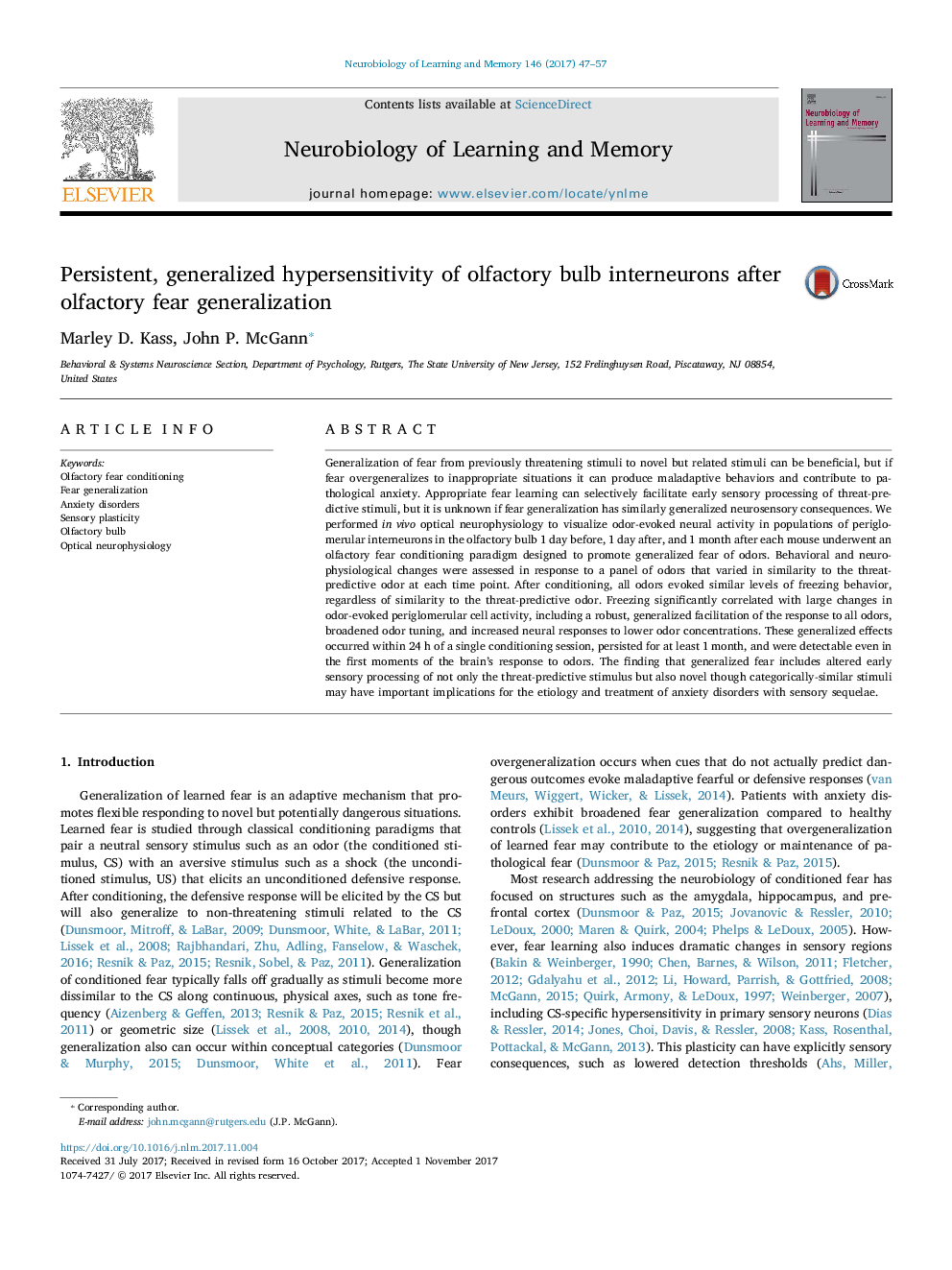ترجمه فارسی عنوان مقاله
تداوم حساسیت عمومی بین لنفوم بویایی پس از تعریف ترس بویایی
عنوان انگلیسی
Persistent, generalized hypersensitivity of olfactory bulb interneurons after olfactory fear generalization
| کد مقاله | سال انتشار | تعداد صفحات مقاله انگلیسی |
|---|---|---|
| 131072 | 2017 | 11 صفحه PDF |
منبع

Publisher : Elsevier - Science Direct (الزویر - ساینس دایرکت)
Journal : Neurobiology of Learning and Memory, Volume 146, December 2017, Pages 47-57
ترجمه کلمات کلیدی
تهدید تهوع وحشی، تعاریف ترس، اختلالات اضطرابی، پلاستیک حساسی، لامپ رژ لب، نوروفیزیولوژی نوری،
کلمات کلیدی انگلیسی
Olfactory fear conditioning; Fear generalization; Anxiety disorders; Sensory plasticity; Olfactory bulb; Optical neurophysiology;

